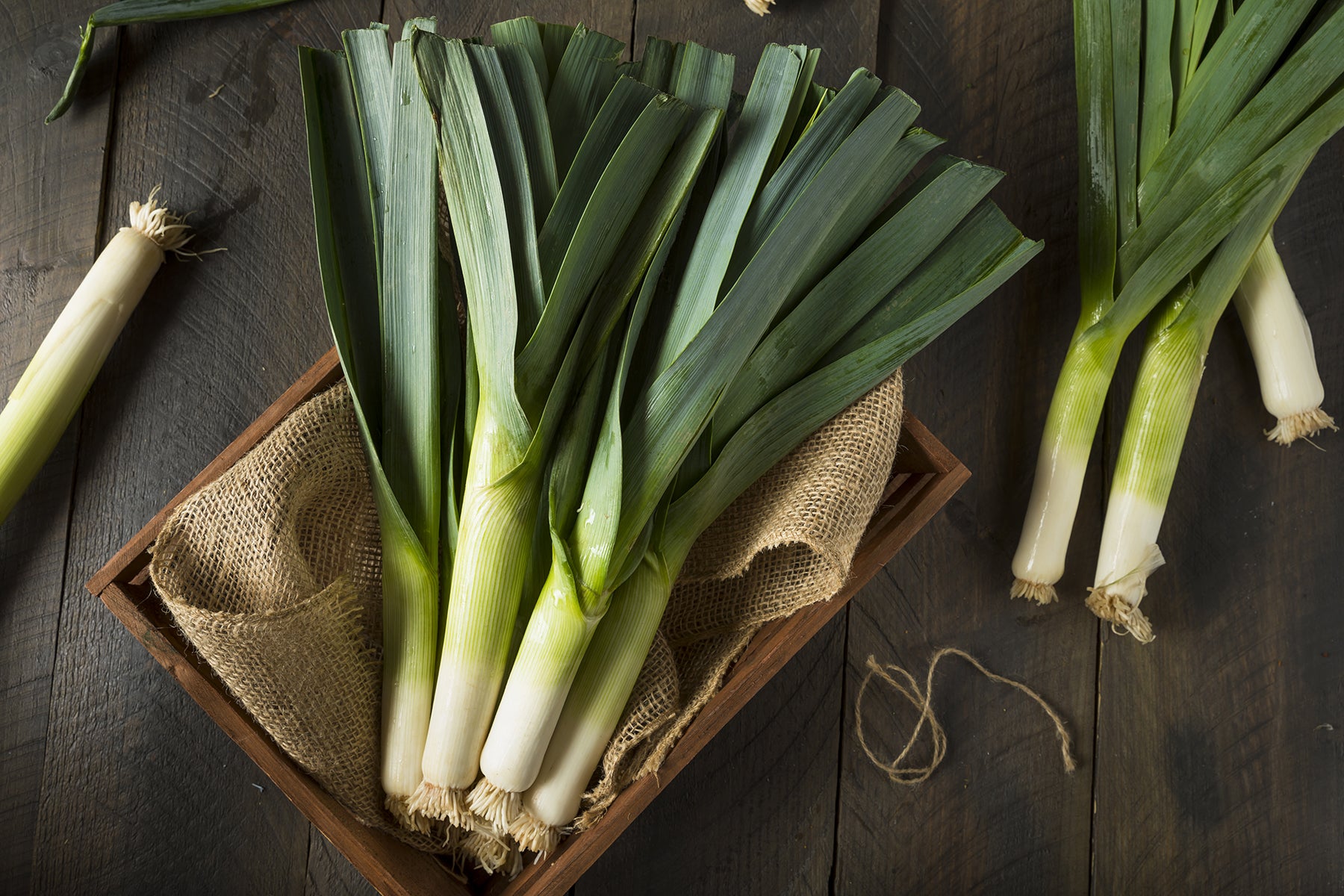One Ingredient, Three Ways: Leeks

(Photo: Brent Hofacker / Shutterstock)
Leeks provide a host of health and taste benefits but are often overlooked in favor of their not-so-distant cousins, garlic and onion. All are members of the allium vegetable family, which boast nutrients from B-vitamin folate, to flavonoid kaempferol. Leeks contain many of the same health-promoting compounds as onions and garlic, and are known for their cardio-protective benefits.
Tip: Like onions and garlic, leeks should sit for at least five minutes after you slice them, and before you cook them, to enhance their health-promoting qualities. Here are a few simple ways to incorporate leeks into recipes:
Leek-squash chickpea pancakes: Who doesn’t love a recipe based on a crunchy, traditional potato pancake? To make leek pancakes, use chickpea flour as a base, along with yogurt and peeled squash, and include sautéed leeks to meet the desired flavor. Recipe hack: The leeks and squash can be cooked 2 days in advance; the batter can also be made ahead to save time.
Related: All About Leeks
Pasta with roasted leek tomato sauce: Forget jarred tomato sauce. Using pasta as the base—either a gluten-free variety, or a spiraled squash to create, say, zucchini noodles—prepare a topping of leeks with other veggies. Brown sliced leeks until soft, then bake them at 400 degrees F for about 30 minutes, along with other chopped produce, such as tomatoes and bell peppers, for a unique and tasty topping.
Barley and leek pilaf: Leeks and golden raisins bring a burst of bright green color to this one-pot meal. Slice leeks then combine with raisins, quick-cooking barley, water, herbs and oils to create a 20-minute pilaf that’s not short on flavor.
Kayleen St. John is the resident nutritionist at NYC’s Natural Gourmet Institute. Kayleen has a Master’s degree in clinical nutrition from NYU and is a registered dietitian. Her research examines the relationship between diet and inflammatory conditions. Kayleen is an avid runner and believes smart nutrition contributes to optimal athletic performance. Our new course, Foundations of Plant Based Nutrition, led by Kayleen, covers essential plant-centric professional cooking techniques, health-focused topics including allergens and inflammation, and how to separate nutrition fact and fiction in a vegan and veg diet.